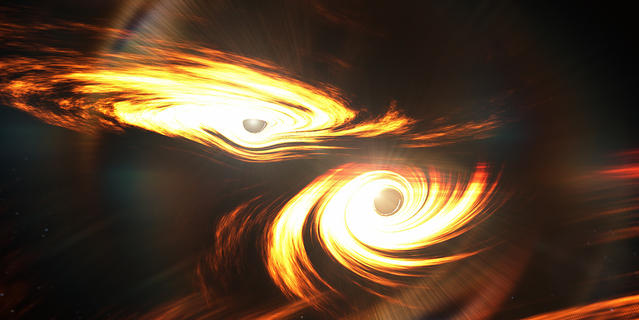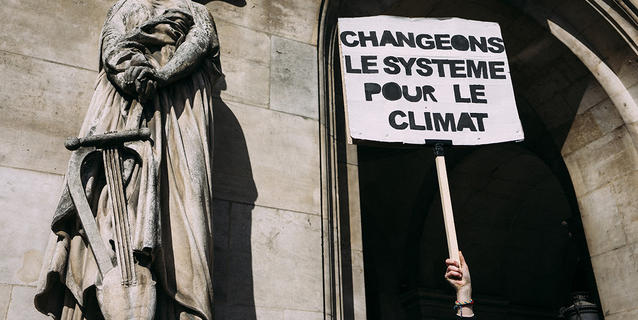|
|
 |
|
|
|
|
Tracking Covid-19 in wastewater
|
|
09.22.2020 |
|
Chemistry
Testing sewage for Covid-19 could help predict future outbreaks. The Obépine project, which analyses wastewater, could use the concentration of the virus in human faeces to develop an early alert system in France.
|
|
Read the article
|
|
|
|
|
 |
|
|
|
|
Black holes of the third kind
|
|
09.04.2020 |
|
astrophysics
Virgo and LIGO have just announced the detection of gravitational waves produced by the oldest and most massive source ever observed. The discovery reveals the existence of a class of black holes that had never before been detected, and could explain how supermassive black holes are formed.
|
|
Read the article
|
|
|
|
|
|
Also this month
|
 |
|
|
|
The answer to marine pollution lies on land
|
|
09.01.2020 |
|
Environment Plastics, chemicals and oil spills pollute and endanger marine ecosystems. Yet cleaning up the ocean is rarely, if ever, possible. Solutions must therefore consist in reducing waste and other hazardous materials.
|
|
Read the article
|
|
|
|
 |
|
|
|
Camels emerge from the dusts of oblivion
|
|
08.23.2020 |
|
Archaeology Three years ago, in a virtually unexplored part of northern Saudi Arabia, exceptional animal sculptures depicting life-sized camelids and equids were discovered. Were they carved by the Nabateans some 2,000 years ago? New fieldwork at what is now called the “Camel Site” revealed much earlier... |
|
Access the slideshow
|
|
|
|
 |
|
|
|
Probing the hidden side of thunderstorms
|
|
09.20.2020 |
|
Meteorology The TARANIS satellite is scheduled to launch from Kourou (French Guiana) in November in order to study the luminous phenomena that occur above thunderstorms. The objective of the French mission, which will for the first time carry out an exhaustive, long-term analysis of these events, is to improve... |
|
Read the article
|
|
|
|
 |
|
|
|
Reducing inequalities to save the planet
|
|
09.03.2020 |
|
Economy The economist and CNRS senior researcher Gaël Giraud offers a sobering assessment of the global trend towards privatisation and its dangers for the environment, along with a new perspective on the concept of common wealth. |
|
Read the article
|
|
|
|
 |
|
|
|
Improving goalkeepers’ attention
|
|
08.21.2020 |
|
Cognitive science Knowing how to look sideways can be crucial for professional football players, and goalkeepers in particular! A researcher in cognitive science recently conducted a study involving a number of them, with promising results for the improvement of peripheral vision.
|
|
Read the article
|
|
|
|
|
|